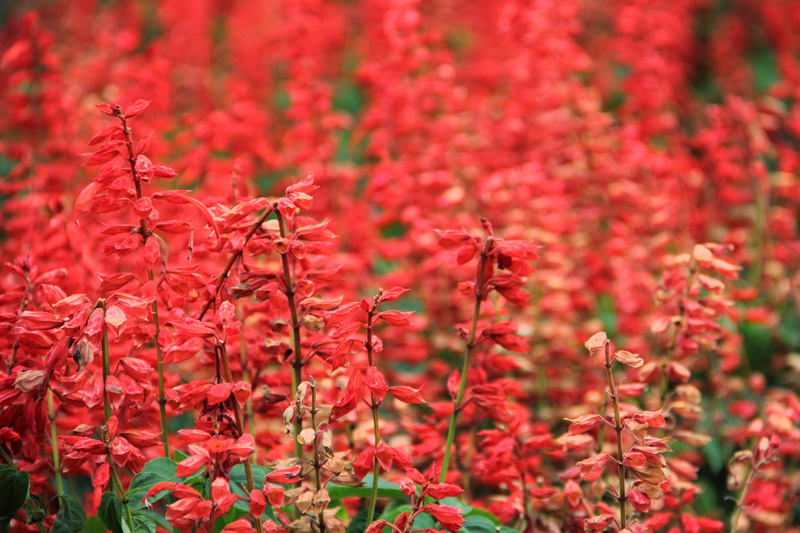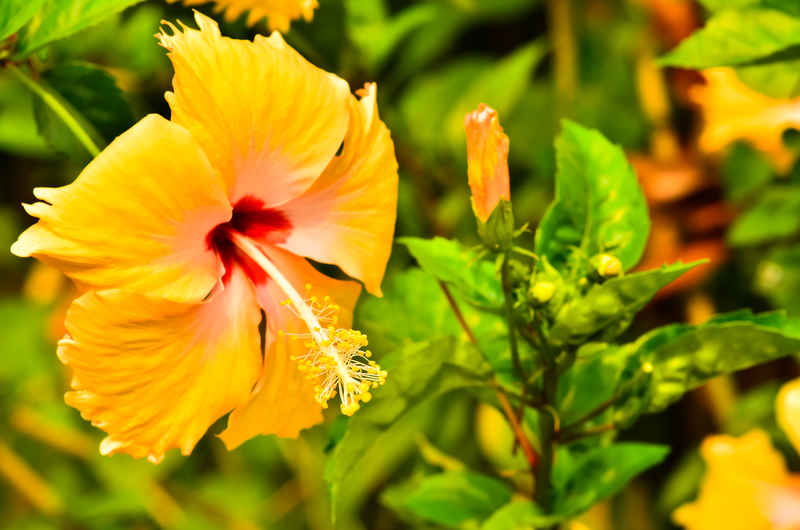Cultivate Your Passion: 9 Foundational Tips for New Gardeners
Posted on 19/06/2025
Are you dreaming about starting your own gardening journey, but feeling uncertain where to begin? Don't worry--you're not alone. Learning how to cultivate your passion for gardening can be fulfilling, therapeutic, and even transformative. Below, you'll find nine foundational tips designed specifically for new gardeners to establish a thriving, enjoyable garden. Let's grow together!
1. Start Small and Build Confidence
New gardeners often get carried away and attempt large, ambitious plots. While enthusiasm is wonderful, it's smarter to start modestly. A few containers, a small raised bed, or a designated corner of your yard is ideal.
- Small gardens are easier to manage and less overwhelming.
- You'll be able to observe and learn from your plants' behavior.
- Rookie mistakes will have fewer consequences.
By starting small, you'll build confidence and master essential gardening skills before expanding your plot.

2. Choose the Right Location for Your Garden
Location is everything. Observe your outdoor space throughout the day and identify areas that receive the most sun. Most plants require at least 6 hours of sunlight per day, although some shade-loving plants can thrive with less.
- Full-sun spots are best for most vegetables and flowers.
- Shadier areas are suitable for ferns, hostas, and impatiens.
- Avoid low-lying areas where water pools after rain.
Knowing your garden's microclimates helps you pick the right plants and achieve healthy growth.
3. Understand Your Soil
Soil is the foundation of every successful garden. Before planting, test your soil with a home kit or through your local cooperative extension. Understanding your soil type--clay, sand, silt, or loam--lets you make necessary amendments for optimal growth.
- Loamy soil: The best for most gardens--balanced and nutrient-rich.
- Clay soil: Often too dense; loosen with compost or sand.
- Sandy soil: Well-draining but can dry out and lose nutrients quickly.
Adding organic matter like compost improves any soil, bolstering nutrients, drainage, and structure.
4. Choose Plants Wisely
One crucial trick to thriving as a beginner gardener is selecting the right plants for your climate and experience level. Review your USDA plant hardiness zone and read plant tags carefully before purchasing.
- Opt for low-maintenance plants like marigolds, zinnias, basil, or cherry tomatoes.
- Consider native plants--they thrive with less intervention.
- Choose a mix of annuals (for color) and perennials (for longevity).
Avoid over-planting: Giving each plant enough space increases airflow and decreases disease risk.
5. Master the Art of Watering
Watering may seem simple, but many beginner gardeners struggle with it. Overwatering leads to root rot, while underwatering causes wilting and poor yields.
- Water deeply, but less frequently, so roots grow strong and deep.
- Early morning is best--it minimizes evaporation and disease risk.
- Check soil moisture by sticking your finger an inch into the soil. If it feels dry, it's time to water.
Mulching helps retain moisture, suppress weeds, and keep soil temperatures steady.
6. Feed Your Plants Thoughtfully
Like all living things, plants need nutrients to grow. While some gardens naturally contain what plants require, most benefit from strategic fertilization.
- Use organic fertilizers like compost, worm castings, or well-rotted manure.
- Commercial plant foods are fine when used as directed.
- Over-fertilization can be harmful--follow label instructions and avoid "more is better" thinking.
Regularly feeding your plants ensures vigorous growth, bountiful blooms, and healthy harvests.
7. Weed and Mulch Regularly
Weeds are relentless--they compete with your plants for sunlight, water, and nutrients. Make it a habit to pull weeds by hand before they flower and set seed.
- Mulch (like wood chips, straw, or shredded leaves) inhibits weed growth and conserves soil moisture.
- Apply a 2-3 inch layer around your plants, but keep it away from stems to avoid rot.
- Stay consistent--removing a few weeds every week makes a big difference!
Prevention is easier than cure--set aside 10 minutes each morning or evening to stay on top of weeds.
8. Practice Pruning and Deadheading
Pruning and deadheading (removing spent flowers) are essential for plant health.
- Pruning helps shape plants, remove dead or diseased growth, and encourage fresh growth.
- Deadheading extends blooming by redirecting the plant's energy from seed production.
- Always use clean, sharp tools to avoid spreading disease.
With regular pruning and deadheading, your garden will look vibrant and well-kept throughout the growing season.
9. Engage, Learn, and Enjoy the Process
The best gardens aren't created overnight. Embrace continuous learning--read gardening books, join local clubs, follow experts online, and ask for advice at nurseries. Cultivating your passion for gardening is as much about enjoying the journey as the results.
- Keep a garden journal to record what works, lessons learned, and future plans.
- Celebrate small victories--your first flower, a harvest, or simply a day spent outdoors.
- Invite friends or family to help; gardening is a wonderful way to bond and relax.
Most importantly, have patience. Plants need time to establish themselves and flourish. Your hard work will pay off season after season!
Beyond the Basics: Expanding Your Gardener's Horizons
Once you've mastered these foundational gardening tips, challenge yourself with new skills:
- Learn about companion planting to naturally deter pests and boost yields.
- Explore organic gardening methods for a sustainable ecosystem.
- Try your hand at propagation--growing new plants from seeds or cuttings.
- Experiment with vegetable gardening, herb gardens, pollinator-friendly flowers, or even raised beds and vertical gardens for small spaces.
Gardening is an ongoing adventure. The best way to deepen your passion is to keep trying, learning, and discovering what you love most in the garden.
Common Mistakes to Avoid for New Gardeners
Even the most enthusiastic new gardeners make mistakes. Learning what to avoid sets you up for greater success:
- Neglecting soil health: Remember, healthy soil = healthy plants.
- Planting too early or late: Check frost dates for your area before planting sensitive crops.
- Overcrowding plants: Give each plant room to grow and breathe.
- Ignoring watering needs: Both over and under-watering can harm your garden.
- Skipping regular observation: Early intervention can prevent pests and diseases from spreading.
Accept mistakes as part of the process. Each setback is an opportunity to grow as a gardener.

Benefits of Cultivating Your Passion in the Garden
Beyond beautiful blooms and fresh produce, gardening offers a wealth of physical, emotional, and environmental benefits:
- Stress reduction through time spent outdoors and hands-on activity.
- Better nutrition from homegrown vegetables and herbs.
- Exercise from digging, planting, and maintaining your plot.
- Habitat creation for pollinators and beneficial wildlife.
- A sense of accomplishment and responsibility as you nurture life.
Whether you're cultivating a few pots on your balcony or starting a large backyard oasis, you'll gain valuable skills, better health, and priceless joy.
Conclusion: Let Your Garden Journey Begin
Embarking on your path as a new gardener doesn't have to be daunting. By following these foundational gardening tips, you'll set yourself up not just for a successful garden, but for a rewarding and enriching hobby. Remember--start small, choose wisely, nurture your soil, embrace learning, and above all, cultivate your passion for gardening each day. Happy growing!
Latest Posts
Batten Down the Hatches: Garden Tips for Storms
Say Goodbye to Weeds: 3 Tips for a Happier, Healthier Garden
Cultivating Rich Soil Nutrition from Organic Waste

